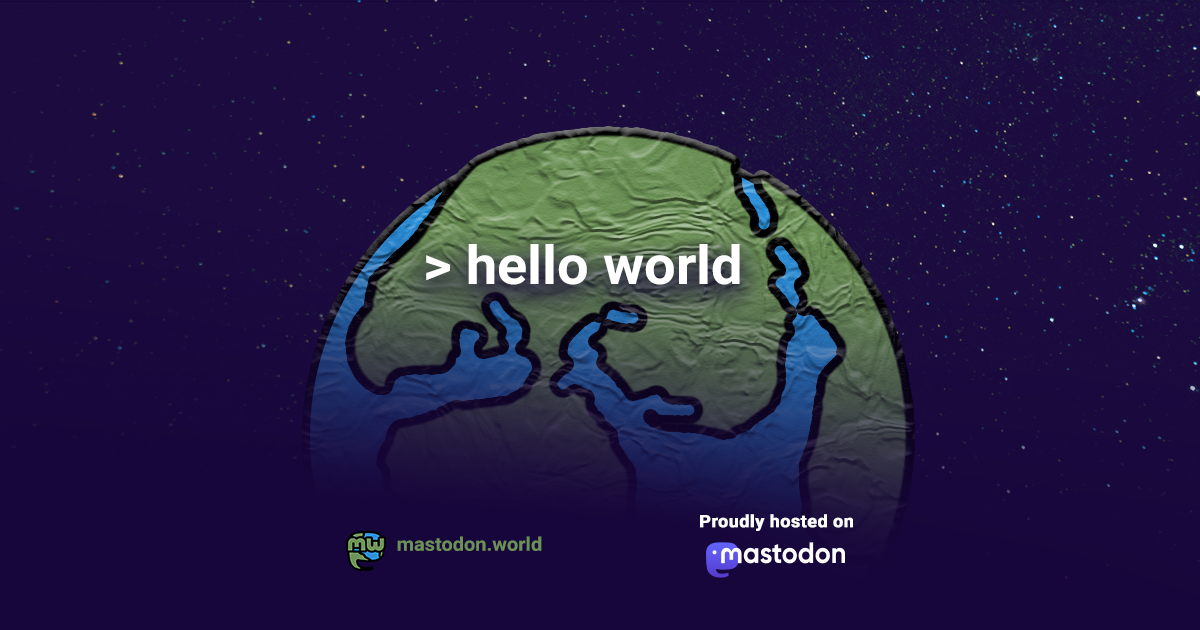mastodon.world is one of the many independent Mastodon servers you can use to participate in the fediverse.

Generic Mastodon server for anyone to use.
Administered by:
Server stats:
8.1Kactive users
mastodon.world: About · Status · Profiles directory · Privacy policy
Mastodon: About · Get the app · Keyboard shortcuts · View source code · v4.4.3
TrendingLive feeds
Mastodon is the best way to keep up with what's happening.
Follow anyone across the fediverse and see it all in chronological order. No algorithms, ads, or clickbait in sight.
Create accountLoginDrag & drop to upload